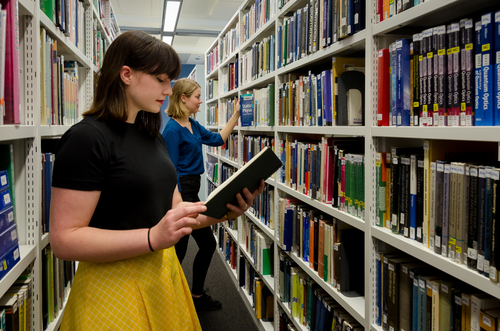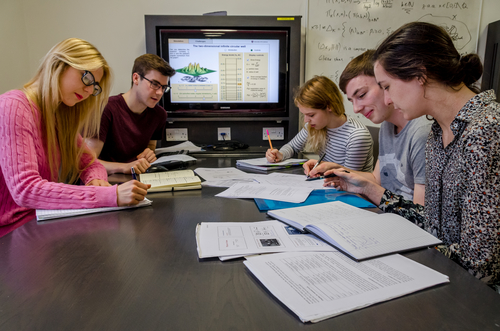Why study Physics and Astronomy at St Andrews
The School of Physics and Astronomy offers excellent teaching in a modern building with purpose-built facilities. The student-staff ratio is relatively small, meaning that you can interact with the academic staff on a one-to-one basis and learn in a more personal environment. A degree in physics or astronomy from the University of St Andrews will give you fundamental knowledge, specialist skills and flexibility in thinking to excel as a scientist in many areas of life.
The School is near the Schools of Mathematics and Statistics, Computer Science, and Chemistry, and is a five minutes' walk away from the centre of St Andrews. If you're interested in learning more about St Andrews and the University, see the Why St Andrews pages.
The School of Physics and Astronomy is known for its high teaching quality and student satisfaction. The School was ranked top in Scotland and second in the UK in The Times UK University Rankings 2025. The Guardian University League table 2025 ranks the School top in Scotland and 5th in the UK. Students at the University of St Andrews are more positive about their education than students at any other mainstream university in the UK (National Student Survey 2024). The Times and Sunday Times made our University the 2025 University of the Year for Student Experience and the 2025 Scottish University of the Year.
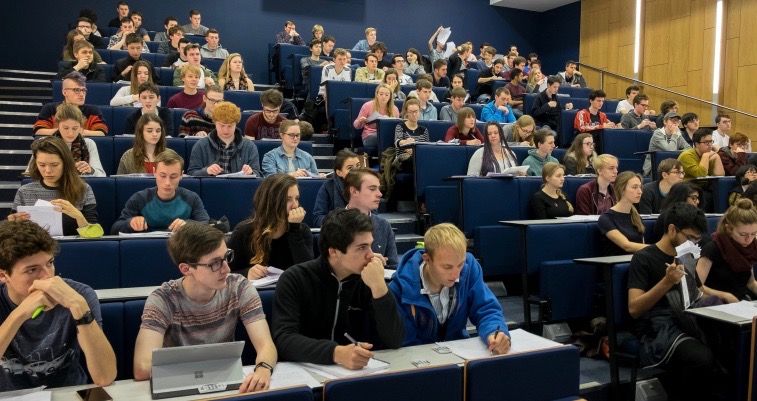
Teaching
Teaching is provided through lectures, tutorials, demonstrations, labs, and problem-solving workshops. Students in physics and astronomy can expect to have around 12 to 15 lectures a week, up to 3 tutorials a week, and up to 3 sessions of laboratory work, across all modules being studied. Typically, you will spend about 40 hours per week in independent study and timetabled sessions.
Lectures
Physics lectures have relatively small class sizes, so students can and do take the opportunity to ask questions during lectures. Some topics have a number of live demonstrations in lectures which help students with the understanding of concepts.
Maximum class sizes in first year are normally up to about 140 students. Class sizes in the final years range from around 90 to 6, depending on the module. This allows you to have a personal learning experience, and staff are pleased to have the reputation of being accessible to students.
Tutorials and problem-solving workshops
Tutorials allow students and staff to discuss aspects of the science covered in the lectures.
Students meet in small groups of about five to eight students once a week to discuss their work with a tutor. In first and second year core physics modules, you will take part in a problem-solving workshop once per week, during which you will attempt to solve unseen problems with your peers, with an expert at hand to help.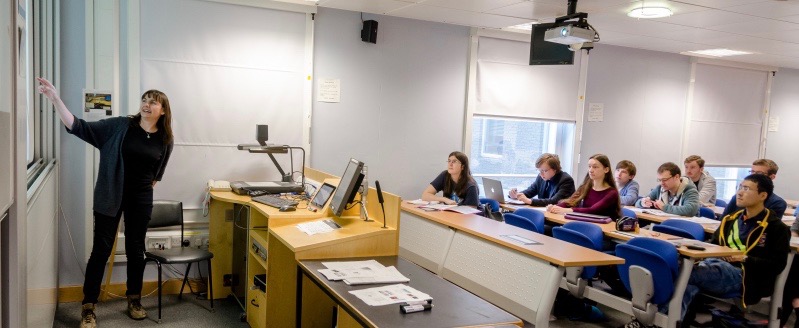
Teaching laboratories
Part of your studies will be learning how to conduct experiments, record your observations and disseminate this information, while exploring some aspects of the physics you are learning about in lectures.
In the teaching laboratories, you start with the basics of making measurements and estimating uncertainties, progressing to more complex, research-inspired experimental setups. At all times, teaching staff will be on hand to help and guide you in your learning.
In level one, you will work in pairs or small groups developing skills fundamental to the practising physicist. In many cases the topics explored will be strongly associated with your lecture work. For instance, level one physics experiments could include:
- exploring the specific heat capacity of materials and finding it is not constant as you cool your samples to cryogenic temperatures
- measuring the charge to mass ratio of an electron
- exploring the physics of waves on a wire and the mechanics of rotational motion
- observing the photoelectric effect, which is just as important in contemporary research as it ever has been.
Towards the end of level-one physics, you will engage in a series of problem-based learning labs, where working in groups you will design your own experiments and carry out measurements to investigate and solve a given set of problems.

In level-two physics continuing students have a choice of more advanced experiments. The direct entrant cohort will initially follow a similar programme to level-one students, to ensure everyone has a good grasp of the fundamentals of carrying out successful experimental work. The whole class will then move on to slightly more advanced experiments, where you are now expected to interpret your observations and data in a bit more detail as it relates to the underlying physics. At this stage you have a choice of experiments that could include:
- exploring the spatial and temporal coherence of laser light
- observing the polarisation of light and how it may be influenced using polarising and birefringent optical components
- investigating simple harmonic motion with damped driven oscillators
- exploring electromagnetism effects.
Toward the end of level two, the whole class will undertake two specific lab courses:
- investigating some important electronic circuits that include potential dividers, semiconductor diodes and op-amps
- a lab where you will develop your coding skills using Python and Arduino in the context of interfacing.
From year three, laboratory work depends on the degree intention. Experimental physics students usually take two laboratory modules, astrophysics students usually take one or two laboratory-style modules, and theoretical physics students typically do not take laboratory modules.
In the laboratories for experimental physics, many experiments have been inspired by research taking place in the School. You will use equipment that resembles what is used in research labs. You will now be competent in using different types of equipment and recording your work, although some experiments will further develop specific skills.
Astronomy students will also be able to observe in the University Observatory, which contains a number of excellent telescopes, including the largest operational optical telescope in the UK.
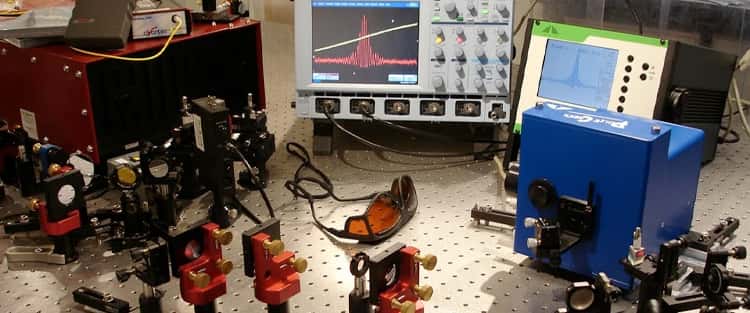
Final year project - be part of a research project
Final year projects are carried out by all students, usually in collaboration with one of the School's research groups. This project is an exciting and challenging way to discover aspects of physics and astronomy first hand. It offers you the chance to delve into a topic you are passionate about, and you will often have the chance to work alongside leading researchers in that field. You will have access to many of the School’s facilities and gain hands-on practice and experience working in a professional research environment.
Integrated Masters students normally work full time on their project for their final semester, while BSc students normally work half time on their project for their final semester.
Find out more about research in the School.
